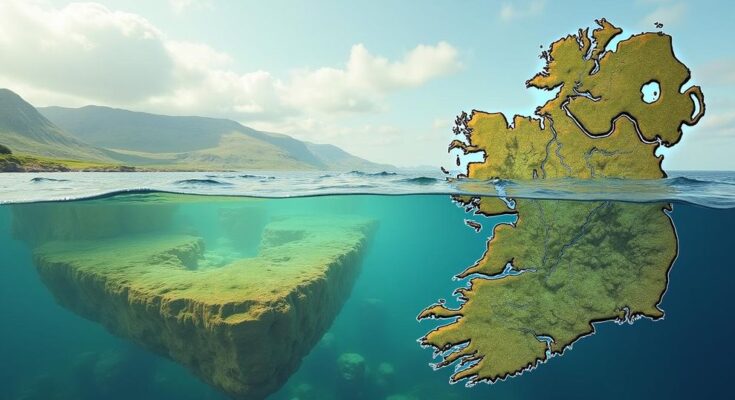Professor Karen Wiltshire emphasizes the critical issue of climate change in Ireland, outlining the challenges posed by rising sea levels and unpredictable weather patterns, particularly for coastal inhabitants. Trinity College Dublin is actively engaged in research and educational initiatives aimed at reducing greenhouse gas emissions and developing sustainable environmental practices. Their goal includes a 51% GHG emission reduction by 2030 and reaching net-zero emissions by 2040, all while promoting ecological restoration and community collaboration.
Professor Karen Wiltshire addresses the pressing issue of climate change in Ireland, highlighting the significant impacts of global warming and its associated weather extremes, resource shortages, pandemics, and biodiversity loss. As a small island nation, Ireland faces some of the highest sea level rises in Europe and increasingly unpredictable weather patterns. Nearly half of the Irish population resides within 10 kilometers of the coast, which amplifies the urgency for innovative urban planning and resilient coastal infrastructure. Moreover, Ireland is among the highest per capita carbon emitters globally, with heavy reliance on automobiles and industries that contribute substantially to greenhouse gas emissions. In response to these challenges, Trinity College Dublin is making notable strides towards addressing climate change through advanced research and interdisciplinary education. Their initiatives include exploring Irish boglands as carbon sinks, developing sustainable building materials, and assessing the impact of extreme weather on drinking water quality. Furthermore, collaboration with engineers and natural scientists is focused on formulating nature-based solutions to accommodate sea level rise, understanding climate’s effects on health, and implementing eco-friendly practices in campus buildings. Trinity is committed to achieving a 51% reduction in greenhouse gas emissions by 2030 and aims to reach net-zero emissions by 2040, alongside conservation efforts for at least 30% of its land for nature. The university promotes a cultural shift to underscore the interconnectedness of planetary health and human well-being. On October 18, as part of Climate and Biodiversity Action Week, Trinity aims to raise awareness by illuminating the front facade with the Irish climate stripes, a visual representation of climate change data. This event is a collaboration with the Co-Centre for Climate + Biodiversity + Water, where Professor Ed Hawkins contributes as Deputy Director. Supported by various Irish and UK governmental entities, Trinity College Dublin emphasizes the necessity of forming partnerships with stakeholders across the globe to foster a resilient future for Ireland in the face of climate change.
Climate change represents a significant global challenge, particularly for small island nations like Ireland, which are increasingly vulnerable to the impacts of global warming such as rising sea levels and unpredictable weather. Given that a substantial portion of the Irish population resides near coastal areas, the need for innovative solutions to mitigate climate-related risks is paramount. As Ireland has one of the highest per capita carbon footprints, there is a critical need for sustainable practices in various sectors including transportation and industry. Educational institutions, such as Trinity College Dublin, are taking the lead in addressing these issues through research and community engagement, aiming to transform understanding and action regarding climate change.
In conclusion, Professor Karen Wiltshire’s insights into Ireland’s climate challenges underscore the urgency for impactful strategies to combat the implications of climate change, especially for coastal communities. Trinity College’s commitment to sustainability and innovation reflects a proactive approach towards reducing greenhouse gas emissions and fostering ecological resilience. The illumination of the university’s facade with the climate stripes symbolizes a call to action for all stakeholders in Ireland to unite in the effort against climate change, ensuring a sustainable future for generations to come.
Original Source: www.tcd.ie




